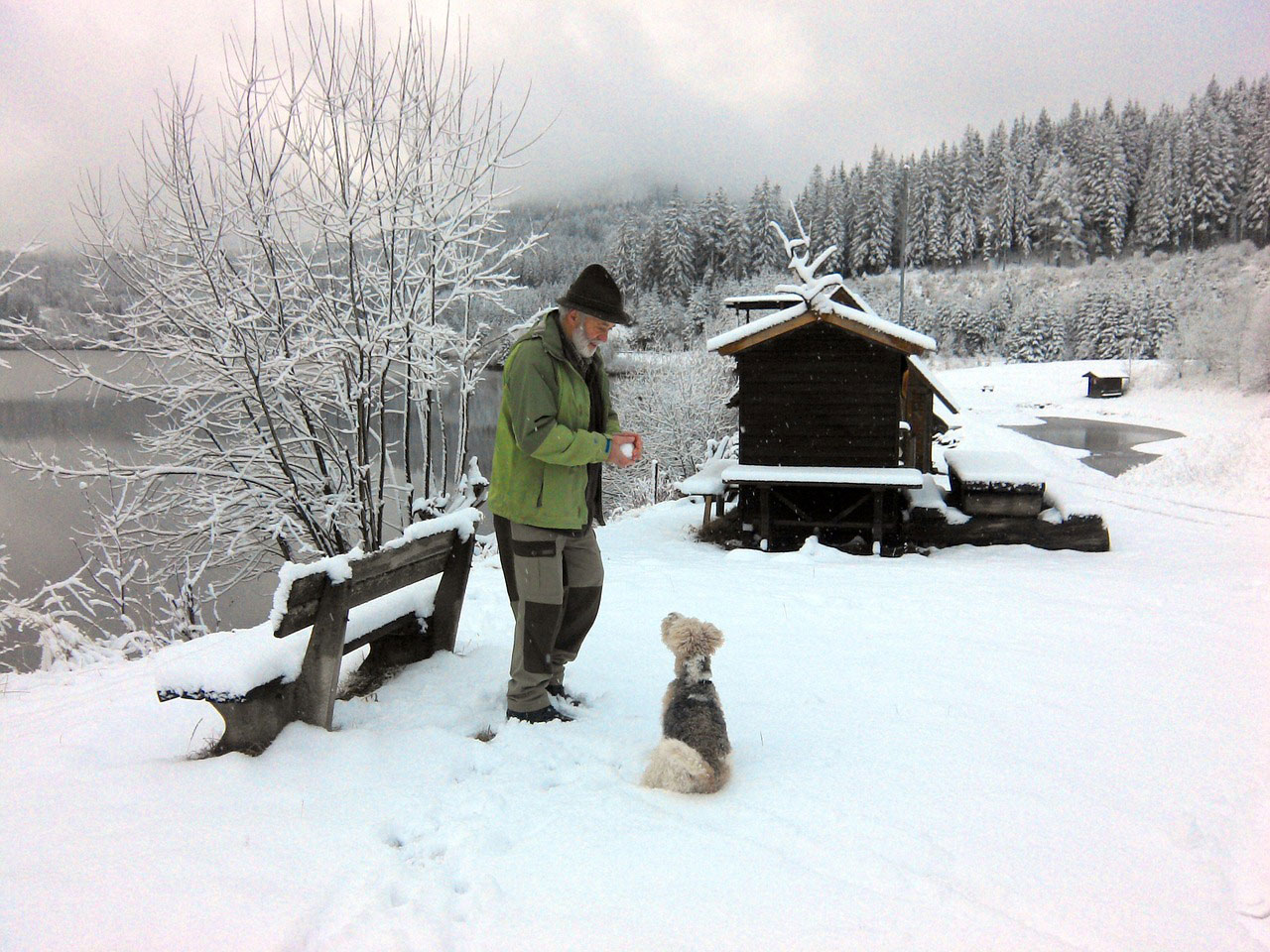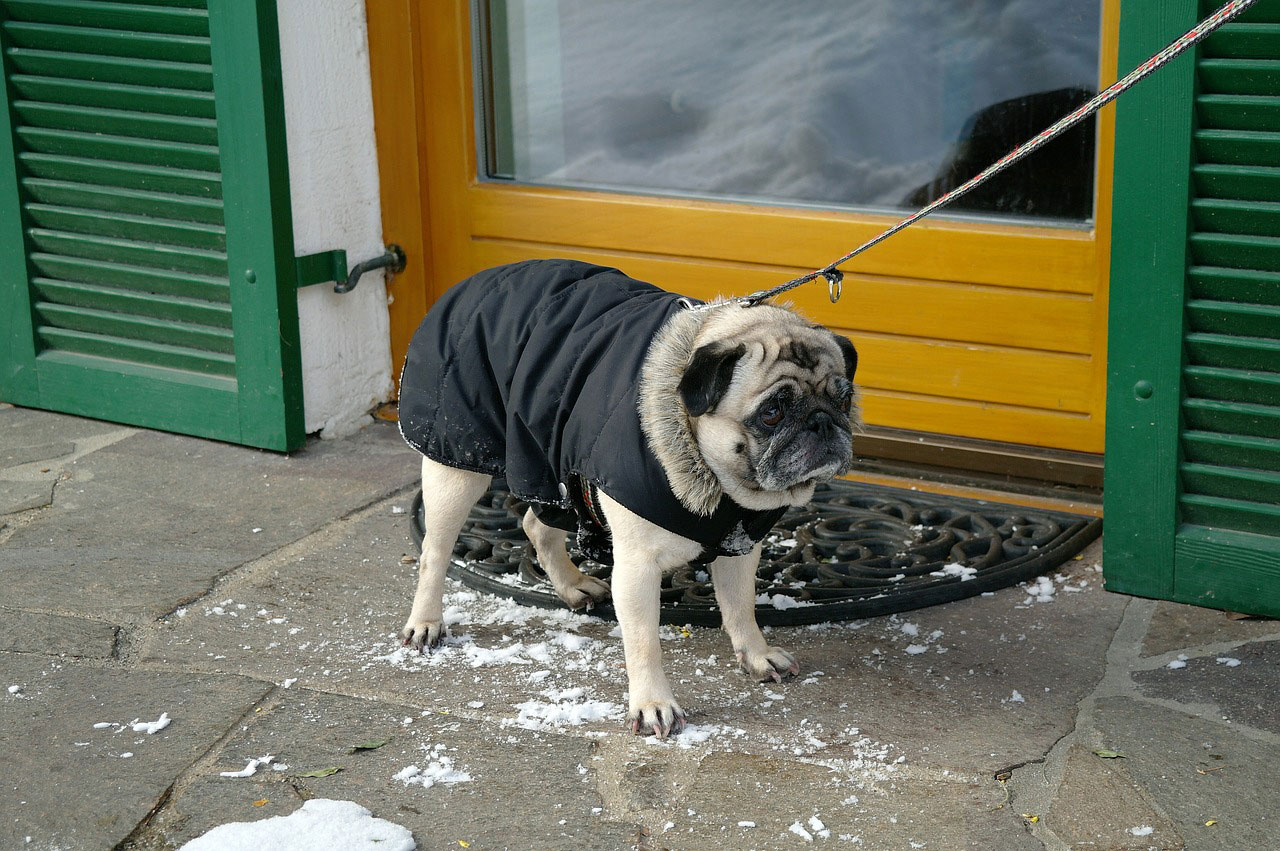
Pets and Seniors: Considerations for Winter Wellness
Seniors and pets are a natural fit for their numerous health benefits, safety, comfort, and companionship. But if you’re gifting a pet to an elderly loved one, there are some health-related factors that should be taken into consideration first. Here’s what you need to know.
Benefits of Pets for Seniors
We love our pets, and no matter what, we’re going to have them. They make us happy even when they can be expensive and take a lot of work. Dogs, in particular, can be expensive to feed, vaccinate, train, and maintain good health and hygiene. But they offer a companionship and comfort that other pets cannot.
Dogs can even be trained to specifically help seniors suffering from dementia. A trained dog can help a senior find his or her way home, and putting a GPS tracker on the dog’s collar can help a family find a loved one who’s wandered off. Additionally, dogs offer benefits to anybody, like improved sociability, self-confidence, happiness, and safety.
Seniors and retirees need to stay active and fit even in the winter months. A dog can help, since dogs require frequent exercise like walking, which is a gentle exercise that’s safe for seniors. Even playing with a dog around the house or throwing a ball in the yard can provide valuable physical exercise for seniors.
Many seniors experience less physical activity and exercise in the wintertime which can lead to worsening symptoms of ageing, injuries, and other ailments. Colder weather and a lack of activity leads to decreased circulation in the body which can make conditions like varicose veins worse. While it’s difficult to maintain activity throughout the winter, it’s easier with a pet companion.
But there are many considerations for pets and seniors throughout the winter to keep in mind. For example, it’s important to be extra careful and avoid slipping and falling on ice or in the snow when walking your dog, and some dogs may need extra training to ensure they are helping to create a safe and happy life for both the senior and themselves. 
Winter Considerations for Pets and Seniors
There are a few things to keep in mind, especially during wintertime. During the holidays, you’re more likely to have visitors and to be visiting others homes. But if you have a dog, it’s important to keep in mind the comfort and safety of your guests, or of others when you are the guest. While you’re making holiday plans, be sure to check with your friends and family to ensure they don’t have any dog allergies and that it will be acceptable for you to bring your pup to their gathering.
While some treatment is available for dog allergies, some people suffer from a fear of dogs or simply cannot cope with the overwhelming symptoms of allergies like congestion, runny nose, watery eyes, itchy nose and eyes, and sometimes even hives, rashes, or tightness in the chest.
Winter Wellness for Elderly Pets
Pets also need their own special considerations for winter wellness, especially if they are older. Winter can be tough for elderly dogs, so here are a few tips to ensure your dog is happy and healthy.
If your dog’s joints and bones seem to be affected by the colder weather, it may be a good time to visit the vet. It’s important to maintain physical activity, but winter walks could lead to an injury if the body is not properly cared for. Consult with your doctor about healthy winter exercise that’s appropriate for your dog’s age and physical needs.
Adding supplements or diet changes could improve joint health and overall wellness for your dog. But diet changes can be tricky, and you don’t want to make your dog sick with the wrong foods. Consult with your vet before making any changes to your dog’s diet.
Try exercising your dog inside where it’s warm and won’t impact joints and bones. Teach new tricks and reward with special treats—just be careful not to overfeed in the colder months when your dog might get less exercise. This could lead to weight gain and associated health issues.
Comfort is especially important for elderly dogs in the winter months, since they can be frail and vulnerable to the cold. They should have a warm and soft bed that’s always available. Make sure the bed is on ground level and easy to access so your older pup doesn’t have to jump up and down to get in and out. Older dogs might also need sweaters, extra blankets, or even booties on their feet for walking in the snow and ice.
The colder weather can also cause changes to your pup’s skin and hair. But over-washing can cause irritation by removing the natural oils that keep fur and skin from drying out. Depending on your type of dog, you may need to wash less frequently, add a conditioner to your grooming routine, or start brushing more regularly. For the best care plan, consult with your vet or local groomer.










